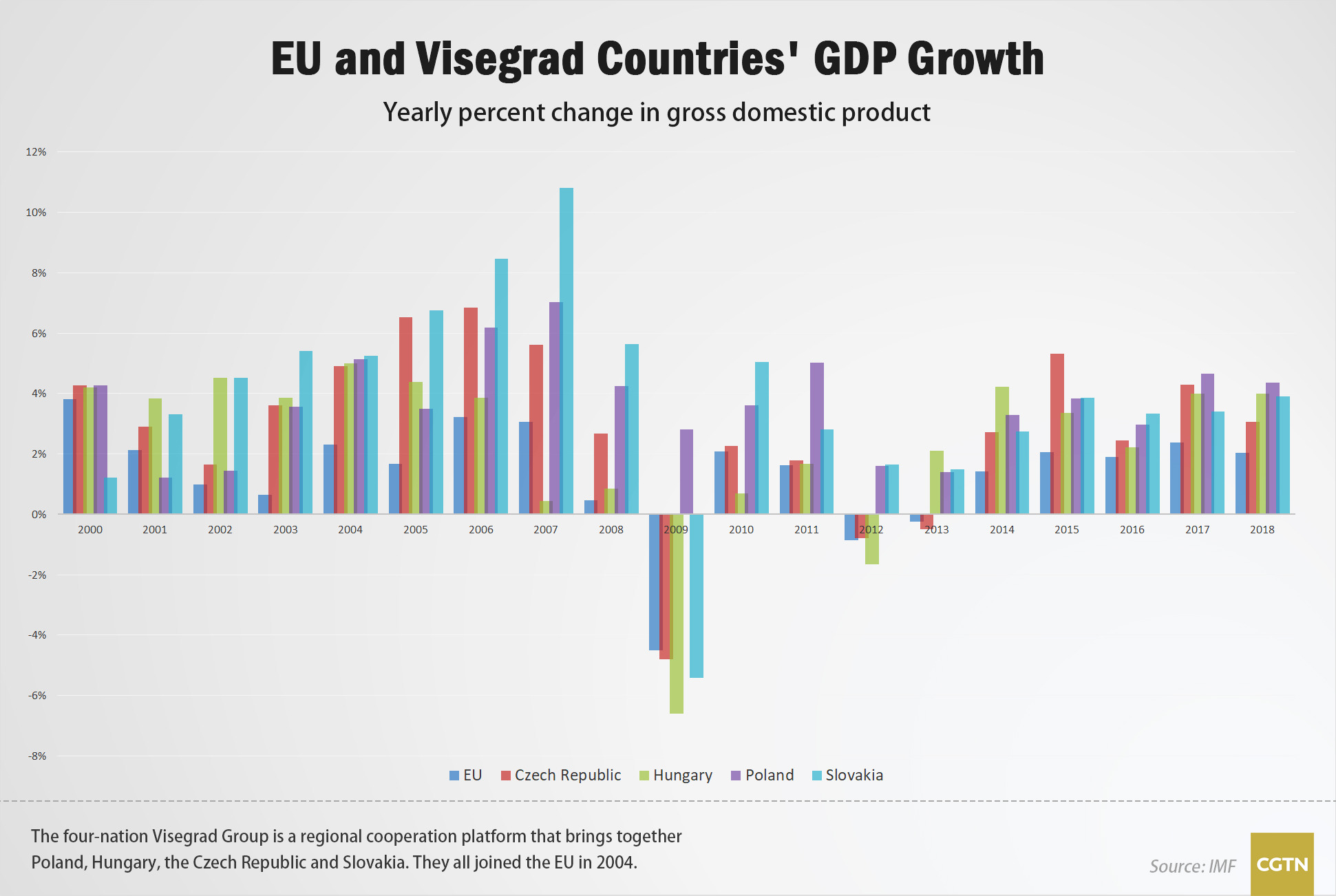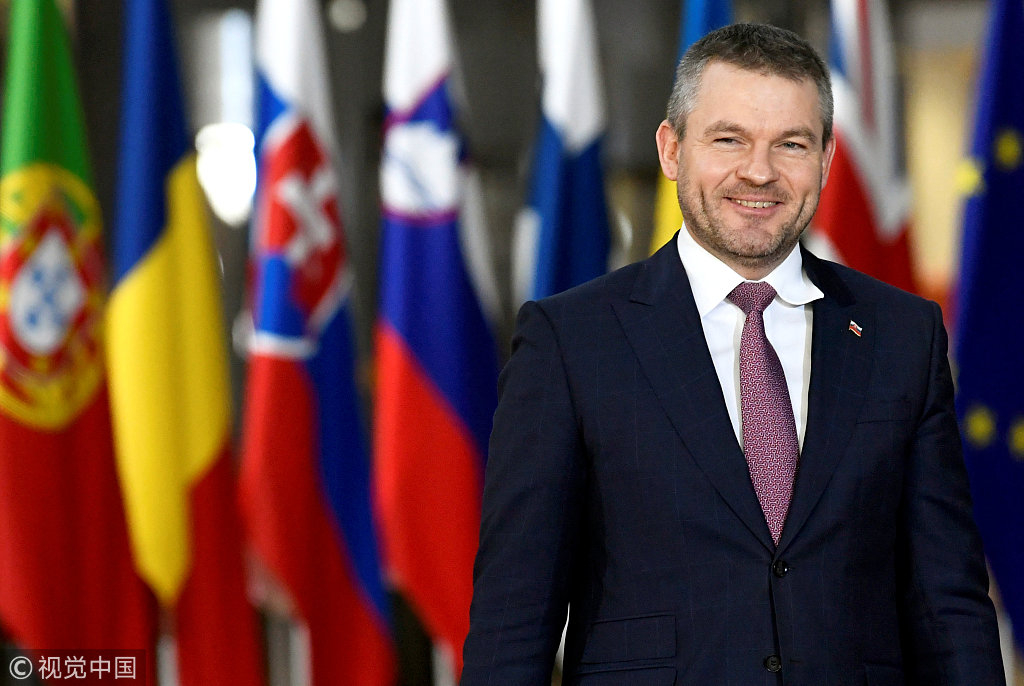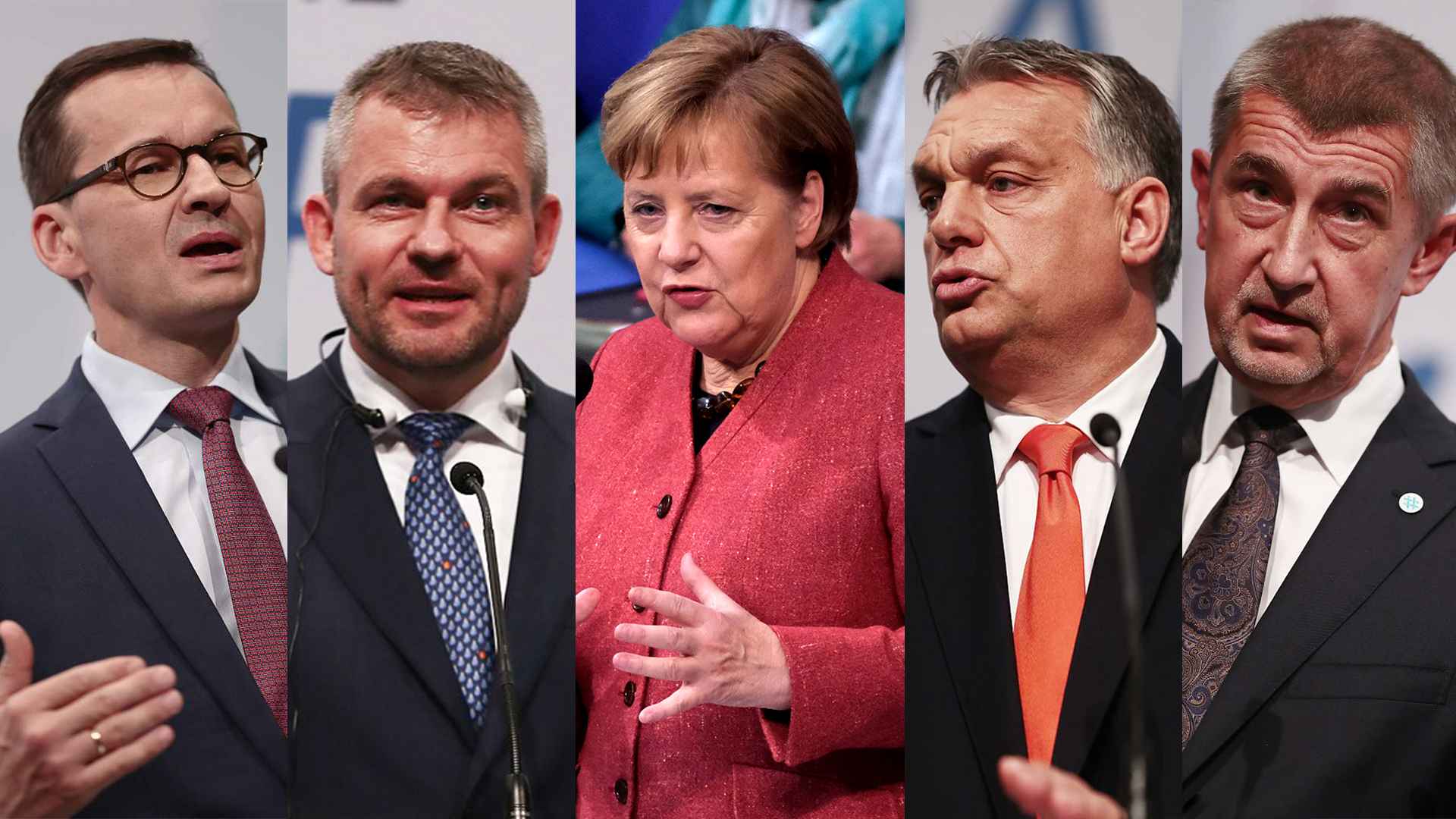German Chancellor Angela Merkel will arrive in Bratislava on Thursday to meet with political representatives of the Visegrad Group (V4) countries – Poland, Hungary, the Czech Republic and Slovakia.
This is the first high-level meeting between Merkel and her V4 counterparts since 2016.
The summit happens against the backdrop of widening gaps on the overall direction of the European Union, on the development of democracy and the rule of law in Hungary and Poland, and the controversy between Berlin and Central and Eastern European capitals over the EU's migration and asylum policies.
Founded in 1991 as a regional cooperation platform, the V4 countries gained their membership in the EU in 2004. Slovakia holds the presidency of the V4 in 2018/2019.
V4: 'Rebellion' within the EU
The V4 countries, with their increasing economies, shared cultural background, intellectual values and common roots in diverse religious traditions, have in recent times made their voices heard on the EU stage through challenging Brussels.
The tensions between the V4 and the EU intensified because of the immigration row, in which all V4 countries rejected the EU's quotas regarding the relocation of refugees.

EU and Visegrad countries' yearly percent change in GDP from 2000 to 2018. /CGTN Photo
EU and Visegrad countries' yearly percent change in GDP from 2000 to 2018. /CGTN Photo
On the one hand, critics of the V4's stance over refugees claim that they are willing to accept the economic benefits of the EU, but have shown a disregard for the humanitarian and political responsibilities.
On the other hand, the V4 complained that Western European countries treat them like second-class members, Brussels meddles in domestic issues and that there are attempts to impose EU-wide solutions against their will, as typified by migrant quotas.
The V4 representatives of European emerging markets enjoyed a high economic GDP growth of 3-4 percent, acting as the most dynamic force within the EU,
With 65 million inhabitants, the V4 has a similar weight to that of France within the EU, which gives it 12.8 percent of the votes within the Council of the European Union.
As the UK is leaving the EU, all EU members are re-evaluating their positions within the bloc. From the V4's perspective, they don't want an EU with post-World War Two vision dominated by mainstream decision-makers in Western Europe anymore.

Polish Prime Minister Mateusz Morawiecki, Slovakian Prime Minister Robert Fico, Czech Prime Minister Andrej Babis, Hungarian Prime Minister Viktor Orban and European commission President Jean-Claude Juncker, Italian Prime Minister Paolo Gentiloni attend a Visegrad group meeting in Brussels, December 14, 2017. /VCG photo
Polish Prime Minister Mateusz Morawiecki, Slovakian Prime Minister Robert Fico, Czech Prime Minister Andrej Babis, Hungarian Prime Minister Viktor Orban and European commission President Jean-Claude Juncker, Italian Prime Minister Paolo Gentiloni attend a Visegrad group meeting in Brussels, December 14, 2017. /VCG photo
Merkel: Shaking up the V4
Merkel's era of dominating German and European politics ends in 2021 and now all eyes are on whether she can manage to stage a smooth exit.
From Berlin's perspective, despite manifest differences on EU policy, there is a strong interest in keeping the V4 countries engaged.
Merkel holds some bargaining chips in hand. Currently, about 40 percent of the Visegrad Group's total trade is with Germany and conflicts of interest still exist inside the V4.
Meanwhile, to shake up the V4, Berlin, along with Paris, has recently devoted more time to engage directly with Bratislava and Prague, the "small bilateralism" of the V4.

Germany's Chancellor Angela Merkel holds a press conference after the European Council, December 13, 2018. /VCG Photo
Germany's Chancellor Angela Merkel holds a press conference after the European Council, December 13, 2018. /VCG Photo
Analysts believe that both parts of former Czechoslovakia see themselves as small states with less interest in establishing a regional bloc to counterbalance Germany or Western Europe as leaders in Warsaw or Budapest wished.
Responding to the question on the different stance towards the EU among V4 countries, Slovak Prime Minister Peter Pellegrini earlier answered that "the EU is our indisputable living space."
Time to talk
Merkel is scheduled to meet first with Pellegrini, then the two will join the others for a lunch to discuss economic matters, foreign policy and European issues.
Merkel and Pellegrini will discuss integration within the European Union. In addition, the prime minister wants to ask the chancellor to support Slovakia's effort in gaining the seat of the European Labor Authority, the TASR newswire reported.
"I believe we can fully participate in decision-making when it comes to the most important European questions," said Pellegrini, as quoted by TASR.

Slovak Prime Minister Peter Pellegrini arrives at a European Union leaders summit in Brussels, Belgium, December 14, 2018. /VCG Photo
Slovak Prime Minister Peter Pellegrini arrives at a European Union leaders summit in Brussels, Belgium, December 14, 2018. /VCG Photo
Polish Prime Minister Mateusz Morawiecki said on Tuesday the topics include Britain's impending exit from the EU, Central Europe's trade with Germany, this year's elections to the European Parliament and the next EU budget.
The four Central European states are later this month also expected to hold a summit in Jerusalem.
(Top image: A combination photo of (from left to right) Polish Prime Minister of Mateusz Morawiecki, Slovak Prime Minister Peter Pellegrini, Germany's Chancellor Angela Merkel, Hungarian Prime Minister Viktor Orban, Czech Republic's Prime Minister Andrej Babis. /VCG Photo)
(With inputs from agencies)






